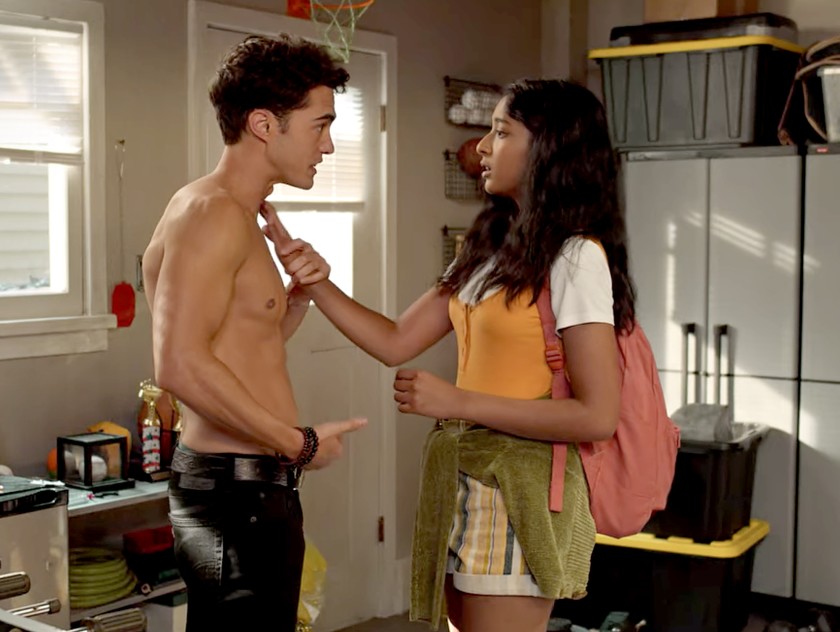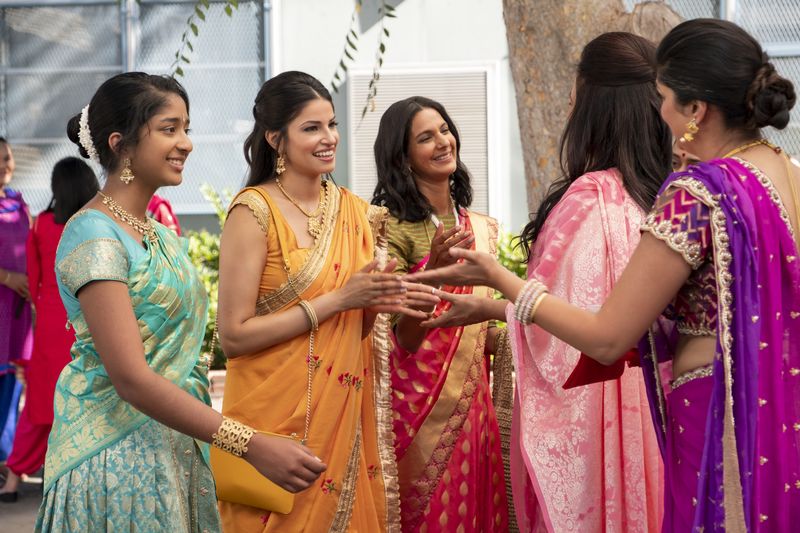By Pui Kuan Cheah
Netflix has been on a roll lately, delivering plenty of content to audiences stuck indoors. Enter teen rom-com Never Have I Ever, from the minds of Lang Fisher and Mindy Kaling. Loosely based on Kaling’s childhood, this series is full of laughs but will also tug at your heartstrings.
Never Have I Ever follows feisty Indian-American teenager Devi Vishwakumar (Maitreyi Ramakrishnan) as she navigates her sophomore year of high school. With her best friends Fabiola and Eleanor (Lee Rodriguez and Ramona Young), she goes on a journey of teenage self-discovery: facing the reality that her crush may not truly be compatible with her, and learning to appreciate and treasure the friendships most important to her. All this while living under the same roof as her mother (Poorna Jagannathan) and high-achieving cousin Kamala (Richa Moorjani). However, unlike many teenagers her age, Devi has to deal with the trauma from losing her father during her freshman year.
What has made the show popular among audiences? One reason could be its relatability. In just 10 half-hour episodes, the series covers many teenage struggles we may find ourselves relating to. With her traditionalist Indian mother, she is expected to be dutiful and obedient, and a student destined for Ivy League success. Devi’s mother also makes it clear to steer clear of boys, but being a rebellious teenager, Devi refuses to comply. She approaches her crush Paxton Hall-Yoshida (Darren Barnet) to ask him to have sex with her, which she eventually realises she is not ready for.
However, relatability is not just achieved through Devi. While the Devi-Paxton romance story line runs its course, other characters deal with their own set of problems too. The show prevents one-dimensional secondary characters by giving them individual story lines to resolve. It isn’t just Devi’s story, but other characters’ stories too.

Devi and Paxton
Fabiola realises she is gay, but is unsure of how to tell her parents. Eleanor pursues her acting ambitions, but we find out her mother had left her in the past. Devi’s frenemy Ben (Jaren Lewison) deals with loneliness and parent issues. We may even sympathise with the non-high school characters: Devi’s mother trying her best to single-parent a teenager, which we know can be tough, and Kamala at crossroads choosing between her Chinese boyfriend and an arranged marriage with an Indian man.
All this aside, the show triumphs in its naturalistic characters, distinguishing itself from other similar coming-of-age series and avoiding Hollywood habits surrounding the genre. Due to this, we can see ourselves in any one of these characters. Most of the main cast’s ages are close to their teen character ages, avoiding casting actors way older than their characters. Characters are also not sexualised unless purposely intended by characters within the plot. Unlike the familiar high school student archetype, Fabiola and Eleanor are not overly focused on romantic relationships, instead turning their attention to their passions. Fabiola displays a strong interest in robotics, and Eleanor with acting. Lastly, the characters often act out of typical teenage pettiness, true to their age. For Devi’s case, her impulsive decisions can be attributed to the fact that she has not properly dealt with the grief from her father’s death.

Devi, her cousin Kamala and her mother.
One cannot discuss Never Have I Ever without bringing up its achievement in diversity too. Diversity is a huge topic surrounding Hollywood, but it’s usually debatable with regard to whether it’s done properly. In all honesty, I think Never Have I Ever succeeds here. Of course, because the series tells Devi’s story, it spotlights Indian traditions and beliefs. There’s even a whole episode where Devi questions her place in the Indian community when she goes to a Ganesh Puja celebration. Her frustrating identity crisis is cross-cultural and may be familiar to some, summed up in this quote from the 4th episode “ÔǪ Felt Super Indian” were she proclaims:
“Some loser was telling me that I’m too Indian, and some other people think I’m not Indian enough.”
For racial diversity, what makes Never Have I Ever special is how characters’ race is not a defining trait shoved into the audience’s face. It’s normal. You never really notice the racial diversity because it looks like our global community that we are accustomed to. It’s only when viewed from afar that you notice how racially diverse the cast is. Together with this, Paxton’s sister also has Down-Syndrome, but there is no explicit mention of this and hence does not draw unnecessary attention to it.
Never Have I Ever may not be able to represent every single person watching, but it never claimed to do so. Yet, it does what many other shows have not been able to for ages: providing audiences with realistic and relatable characters, while swiftly integrating topics of culture identity and racial diversity. With the love triangle set up near the end, I expect a second season in development.


